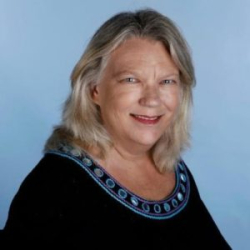1 SunVessel CEO wins state startup competition. Here’s what we know.
Sebastian Gomez-Puerto, founder and CEO of Miami-based SunVessel, was the big startup winner at the Synapse Summit in Tampa last week.
This was not your typical startup competition. To win the contest – which awarded a long list of cash and prizes — Gomez-Puerto had to win all three rounds of the finals, which pitted startup against startup on stage at Synapse. Judges asked the founders questions about team, leadership style, culture, KPIs, working with investors/board members and ethics.
SunVessel’s founder is keeping details of his personal mobility startup under wraps until the startup’s public launch, but we can share some things you may not know about this winner.
SunVessel is made up of a local team of entrepreneurs, engineers and designers from Babson College, FIU and MIT who have been quietly building a new urban transportation infrastructure solution. “We’ve worked hand in hand with the Department of Transportation and many other supporters in the community,” said Gomez-Puerto.
SunVessel was also part of StartUp FIU’s cohort No. 4. “StartUp FIU has been very important in our development as it has helped us define our business model and build our team.”
Gomez-Puerto says he has been obsessed with transportation, movement and robotics his whole life. His career started at Ford Motor Company, and later he went to Babson College for an MBA where he graduated Summa Cum Laude.
“At Babson I co-founded my first company, Cafe X, a successful venture-backed robotic coffee bar company in San Francisco,” he said. “It was during my time in San Francisco that I dreamed about how I could change micro-mobility in a way that was scalable, responsible and beautifully designed. So I decided to come back to Miami to build that dream here.”
Gomez-Puerto said Miami, a city plagued with traffic problems and facing the threat of rising seas, is the quintessential city of the future and seemed the ideal place to launch an environmentally friendly micro-mobility startup. Stay tuned for more on SunVessel.
2 Lawmakers seek update of Florida’s self-driving laws.
Speaking of mobility, at least two Florida lawmakers are trying to revise Florida’s motor vehicle laws to better prepare for a future dominated by driverless cars.
According to a Sun Sentinel report, two legislative bills — one in the House and a companion bill in the Senate — are aimed at preserving Florida’s status as a pioneering state for autonomous vehicle development (Florida was one of the first states to legalize it). The new bills would eliminate requirements for human operators to be on hand to take control of fully autonomous cars if needed, as pilot tests in Miami-Dade by Ford and others around the state now require. It also legalizes driverless vehicles fully run by software systems. While these bills have a long way to travel to become law in the legislative session that opens in March, they are out of the gate. Read the story here.
3 Get counted today: Startup Genome project needs you.
Time out for an important PSA from your entrepreneurial community.
Your input is needed before Jan 31 💪🏼 to put Miami on the global map.
Since 2011, Startup Genome has been working on identifying gaps and assessing startup ecosystems around the world, thanks to support from founders and executives like yourself.
Add to Miami’s presence in the 2019 report and take 15 minutes to complete the Global Startup Ecosystem survey. At the end of the survey, there are amazing rewards like free trials of Gusto, Mixpanel and other software tools.
Take the survey here.
4 MobileHelp is adding 150 jobs.
Earlier this month, we told you about Modernizing Medicine moving its headquarters to the site where IBM developed the first PC. It’s now called the Boca Raton Innovation Campus. MobileHelp has also expanded to 50,000 square feet in the newly refurbished facility and plans to add 150 jobs, the South Florida Business Journal reported.
MobileHelp, one of the region’s senior-tech players, provides mobile personal medical alert systems. The tech company was founded in 2006 and currently has about 220 employees. With state and local incentives, the company is expected to add another 150 jobs. Read more here.
Have a news tip or feedback? Email ndahlbergbiz@gmail and follow me on Twitter @ndahlberg.
4 things to know in #MiamiTech: We have a winner, how to get counted and more

Latest posts by Nancy Dahlberg (see all)




